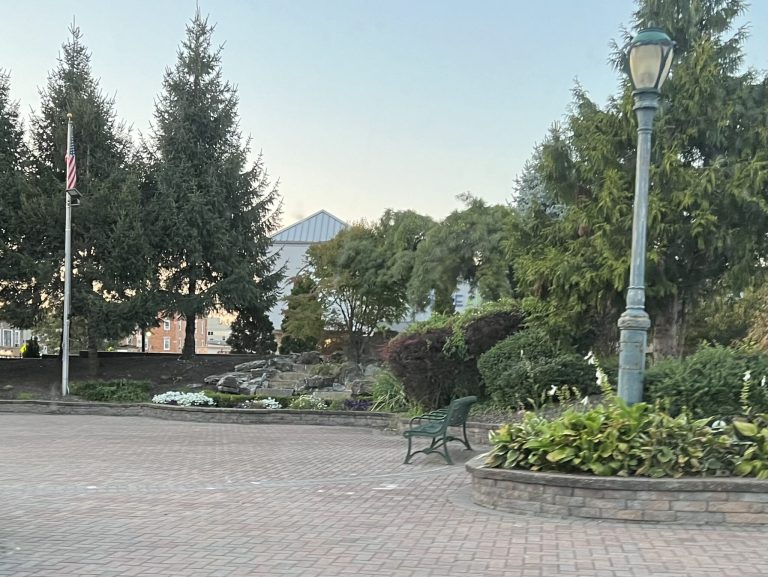
Three villages in the Town of North Hempstead plan to enhance daily life via pro-housing grant funding.
With the signing of Executive Order 30, Gov. Kathy Hochul created a program that allows local villages to reap the benefits of key discretionary funding programs totaling $650 million.
The executive order, dubbed the Pro-Housing Community Program, was signed in July 2023.
Mineola, Port Washington North and Westbury are among 162 communities in the state that have earned a pro-housing certification, receiving the status within the past seven months.
Localities must achieve the “Pro-Housing Communities” certification to apply to key discretionary funding programs.
To be granted the certification, municipalities must show that they increased their housing stock by 1% in the past year or 3% in the previous three years. Localities that have not seen housing growth can still be certified by submitting their data to the state, showing they can eventually reach the housing goals.
Municipalities with this certification have higher priority for funding programs, totalling $650 million, including the Downtown Revitalization Initiative, the NY Forward program, the Regional Council Capital Fund, capital projects from the Market New York program, the New York Main Street program, the Long Island Investment Fund, the Mid-Hudson Momentum Fund, and the Public Transportation Modernization Enhancement Program.
“She (Hochul) pivoted and rather than mandating from the top down and having this housing compact, I think she came around and decided, why not reward these municipalities that have embraced revitalization, transit-oriented development and housing in general,” Mineola Mayor Paul Pereira said. “And I think it was a layup for her to choose Mineola because no one’s done it longer than us, better than us, more effectively than us and on the scale that we have done it.”
Mineola was the first community on Long Island to receive the designation in January. Pereira said he applied for the village to receive more funding through this new designation.
“What we’ve applied for is improvements to our community center here at Village Hall,” Pereira said. “We are booked nearly every day of the week and it needs some improvements in the HVAC system, it needs windows, it needs a new floor, lighting, so if we could get the state’s help to do that, which is a community benefit at large, it would be a win-win for us.”
Among the following phase of pro-designation certifications was Port Washington North. With the development planning of senior housing, the village was eligible for this status after proving to the state that they will eventually reach their housing goal.
A plot of seven and a half acres of land was designated for 44 senior housing condominiums in the village, which represent over 3% of the 1,300 units that the village currently has. This would allow the village to meet one of the thresholds for pro-housing status.
An additional 4 acres of land will be dedicated to a recreational campus and this is where the pro-housing designation will help.
“We’ve raised $2.4 to $2.8 million to build an accessible, inclusive playground system for the entire community,” Port North Mayor Robert Weitzner said. “Where pro-housing comes in is we’ve actually asked the state if they could expand the scope of what we’re doing for phase two, because we want to put in a splash pad, water play, as well as specific type of lighting for the walking pad.”
Weitzner said he hopes that he can tap into the discretionary funds — either this year or next year — for “phase two” of the recreational campus project.
One of the most recent communities to receive the certification was Westbury a few weeks ago.
Peter Cavallaro, mayor of Westbury, said the village is looking at the various grants associated with this designation to see how it matches up with future programs that they may require funding for.
For instance, Cavallaro said, he may use the funding for redevelopment work of the Piazza, which is an open space in the center of the village where public events take place.
“We’re also looking to maybe use this funding, if we can get it, for the two playgrounds that we have in the village and to make them more modernized and accessible,” Cavallaro said.
Originally, the village was looking to use pro-housing funding grants for charging stations in the municipal parking lots.
But Cavallaro said various departments in the state directed him to other state funding for that project instead of pro-housing funding.
Currently, 22 municipalities on Long Island — 10 in Nassau County and 12 in Suffolk County — sent letters of intent to the state to receive certification. Out of those 22, 11 have been accepted into the program.
The state Division of Housing and Community Renewal will continue to review program applications on a rolling basis, providing approval or denial within 90 days of submission.
Localities must resubmit their housing permit data and any updates to their zoning on an annual basis by the end of quarter one of the next year to remain certified.






